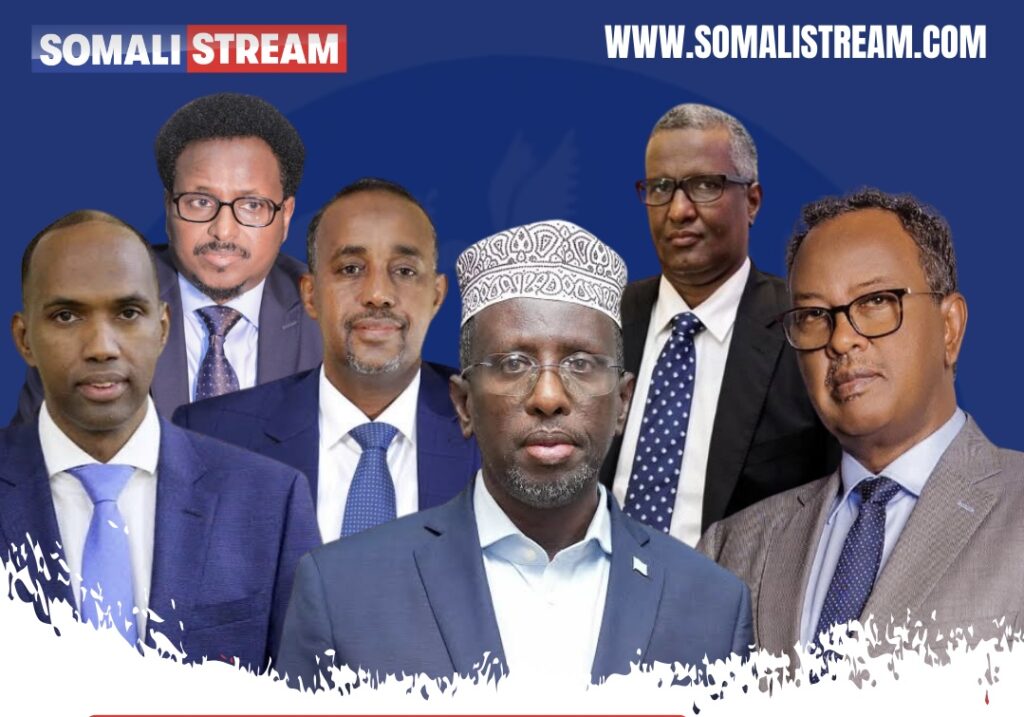In a dramatic political shakeup with far reaching implications, several senior figures from Somalia’s once unified opposition coalition, the Somali Salvation Forum, have broken ranks, aligning themselves with President Hassan Sheikh Mohamud’s contentious drive toward a one person one vote electoral system.
Among the notable defectors are two former Speakers of the House, Mohamed Mursal Sheikh Abdirahman and Sharif Hassan Sheikh Aden, former Prime Minister Omar Abdirashid Ali Sharmarke, and ex Information Minister Dahir Mohamud Geelle. Their departure marks a significant weakening of the Forum and a potential turning point in Somalia’s high stakes electoral transition.
Their exit came just as the Independent Electoral and Boundaries Commission (IEBC) announced an extension of the political party registration period from August 23 to September 6. While the Commission insists this is purely administrative, political observers widely interpret the move as a tactical maneuver designed to accommodate these newly realigned power brokers within the evolving pro government bloc.
But the backdrop to these defections is even more telling.
President Hassan Sheikh’s recent decision to register for the “one person one vote” pilot election in Mogadishu’s Warta Nabadda district was viewed by many in the opposition not as a routine bureaucratic step, but as a calculated provocation aimed at preempting real negotiations. To them, it signaled that Villa Somalia intends to press ahead with its preferred roadmap, regardless of objections from political rivals or federal member states.
Still, the president is playing a dual game. To his party, the Justice and Solidarity Party (JSP), and to allied regional governments, he has promised that no constitutional changes will be implemented without national consensus. Yet, in a closed door meeting just days ago, he offered the opposition what appeared to be a concession: the possibility of suspending the implementation of Article 4, the core legal clause underpinning the one person one vote process.
This strategic ambiguity, assuring allies while placating critics, has given the administration room to maneuver. With the 2026 elections drawing closer and international partners closely watching Somalia’s democratic trajectory, the fragmentation of the opposition couldn’t have come at a more opportune moment for Villa Somalia. It clears the runway for President Hassan Sheikh to consolidate power, marginalize dissenting voices, and potentially secure a historic back to back electoral victory, something no Somali president has achieved since the civil war.
Meanwhile, the remnants of the Somali Salvation Forum, led by former President Sharif Sheikh Ahmed, alongside former Prime Ministers Abdi Farah Shirdoon, Hassan Ali Khaire and Mohamed Hussein Roble, Wadajir Party leader Abdirahman Abdishakur Warsame, and ex Foreign Minister Ahmed Isse Awad, now face the daunting task of reasserting their relevance in a rapidly changing political arena.
As the balance of power tilts toward Villa Somalia, questions remain: Is this the dawn of a more unified democratic path, or the consolidation of executive authority under the guise of reform?
The clock is ticking, and the 2026 election could be Somalia’s most pivotal yet.


